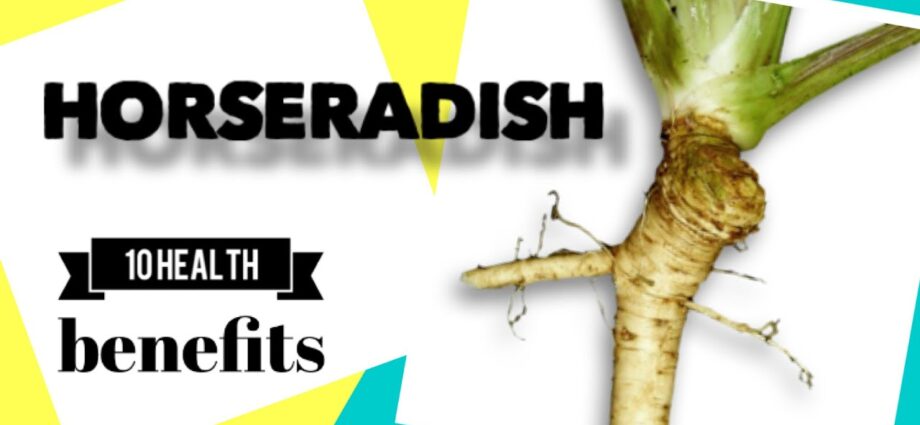Horseradish root: medicinal and beneficial properties. Video
Horseradish, which is native to Europe and Asia, has long been cultivated all over the world. The history of its use as a medicine is older than the history of the use of horseradish as a seasoning. Pliny wrote about the medicinal properties of horseradish in his famous herbalist, adding that this root is not used for food.
Horseradish root: beneficial properties
Useful substances in horseradish
Horseradish is low in calories and fat, but high in vitamins, minerals, antioxidants and dietary fiber that are beneficial for the body. The root contains many volatile phytochemicals that are responsible for its bitter, pungent taste and specific aroma. These same compounds act as antioxidants and promote detoxification. Horseradish contains a large amount of vitamin C, which increases immunity and relieves viral infections.
100 grams of the root contains about 29 mg of vitamin C, which is 40% of the recommended daily value.
Horseradish also contains the following vitamins and minerals: – folic acid; – niacin; – pantothenic acid; – riboflavin; – pyridoxine; – sodium; – potassium; – manganese; – iron; – copper; – zinc; – magnesium.
When choosing horseradish, give preference to medium-sized roots, without mold, stains, sprouts. Don’t buy greenish roots, they are too bitter
Horseradish root treatment
Horseradish is a reliable remedy for sinus congestion. Take ¼ spoonful of freshly grated horseradish root, put it in your mouth and hold until you realize you no longer taste. Spit out the horseradish. Scientists have proven the effectiveness of horseradish as an antibiotic that is active against many strains of bacteria. Because of these properties and the high sulfur content in horseradish root, it can cope with sinusitis.
Since ancient times, herbalists have used horseradish as an effective diuretic and remedy for kidney stones. For bladder infections, a mixture of 3-4 tablespoons of freshly grated horseradish with 100 ml of apple cider vinegar and the same amount of honey helps. Eat a teaspoonful after each meal. To get rid of swelling, mix 30 g of freshly grated horseradish and 15 g of mustard seeds, pour 200 ml of boiling water and cover. After 4 hours, you can take this infusion 1 tablespoon every hour.
Horseradish root can help with lung problems, coughs and asthma, and respiratory problems associated with allergic reactions. You can make an infusion of horseradish root and sweeten it with honey. The same infusion can be taken not only internally, but also externally, for rheumatoid arthritis, lumbosacral sciatica, gout. Make a warm compress, moisten the gauze with a heated infusion, apply to the affected surface and cover with polyethylene, and then bandage with a warm scarf and hold for 20-30 minutes.
Horseradish is also used to treat: – colic; – headache; – sciatica; – toothache; – skin problems. It is effective in stimulating appetite.
Horseradish can irritate the gastrointestinal tract, increase urinary output, and cause kidney problems if there is not enough fluid.










